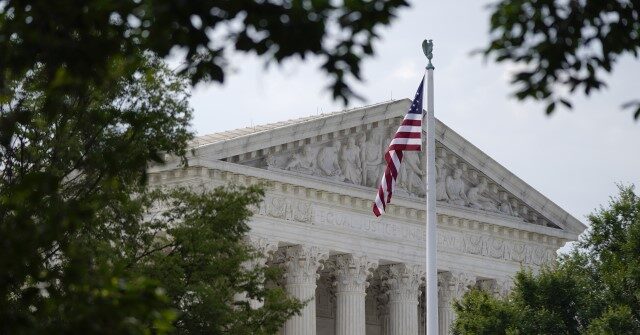WASHINGTON, DC – Arizona can continue requiring proof of citizenship to register to vote while legal challenges continue in court, but once registered, people can still vote in presidential elections or vote by mail without such proof, a fractured Supreme Court ruled on Thursday.
Election law in Arizona has required proof of citizenship since 2004. A divided Supreme Court held in 2013 that a federal law allowing people to register to vote with a federal form that does not require citizenship proof overrides state law, including Arizona’s. Since then, registrants using a standard registration form must present proof, but applicants who know about the federal option can still go that route and avoid proving that they are American citizens.
Then lawmakers in the Grand Canyon State passed an election integrity law in 2022. Among other things, that statute provided that no one in Arizona can vote in presidential elections or vote by mail without proof of citizenship. Allies of the Democrat Party sued in their relentless push to expand mail-in voting and early voting, and a lower court judge blocked Arizona’s law.
That injunction is now on appeal before the U.S. Court of Appeals for the Ninth Circuit. While that appeal is pending, the Republican National Committee (RNC) applied to the Supreme Court to stay the trial court’s injunction, allowing the law to go fully into effect for the 2024 election while the lawsuit continues.
On Thursday, the Supreme Court split three ways in a fractured ruling, allowing some parts of Arizona law to go into force, but not others – all while the appeal plays out and will eventually end up for a final decision before the justices. None of the justices issued opinions explaining their vote, so no one can know at this point whether the vote reflected a final decision on the legal issues in play.
Chief Justice John Roberts and Justice Brett Kavanaugh were the swing votes. They upheld the provision requiring proof of citizenship when registering on a state form. However, they did not lift the lower court’s block on the provisions forbidding presidential voting and mail-in voting without proof of citizenship. They could still vote to do so when the appeal finally reaches the high court.
The two most conservative justices on the court, Clarence Thomas and Samuel Alito, voted in favor of Arizona on all three issues, joined by libertarian Justice Neil Gorsuch.
The remaining four justices voted to block all these requirements. They include the three liberal justices, but also Justice Amy Coney Barrett. Though again, Barrett could vote with the conservatives when they finally hear the case, presumably in late 2025.
“Today’s split decision shows that election integrity continues to win,” Ambassador Ken Blackwell, who chairs the Center for Election Integrity at the America First Policy Institute, exclusively told Breitbart News. “We will continue the fight to make it easy to vote, but hard to cheat, and hope to show a majority of the justices that all of these aspects of Arizona law are completely legal ways to safeguard the ballot box.”
The case application is RNC v. Mi Familia Vota, No. 24A164 in the Supreme Court of the United States.
Breitbart News senior legal contributor Ken Klukowski is a lawyer who served in the White House and Justice Department. Follow him on X (formerly Twitter) @kenklukowski and Instagram at kenklukowski.
